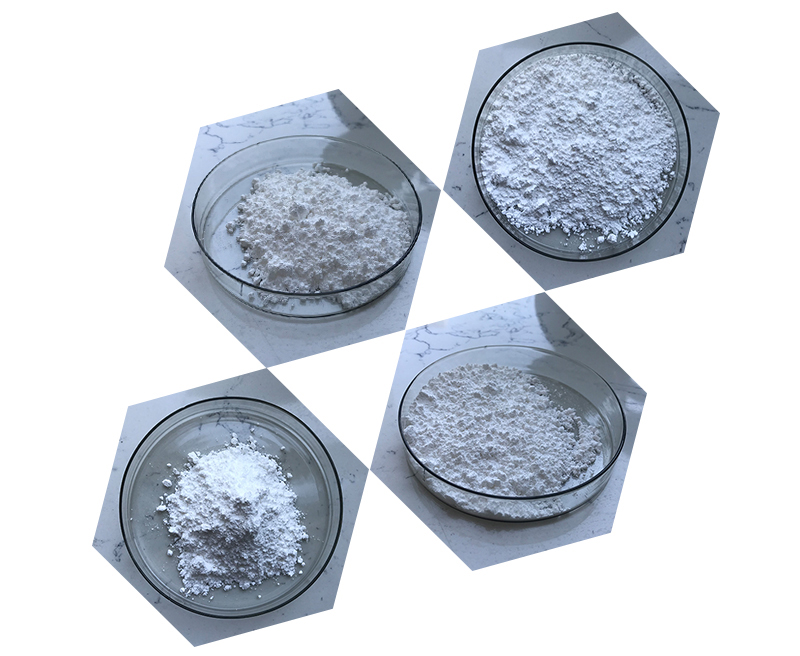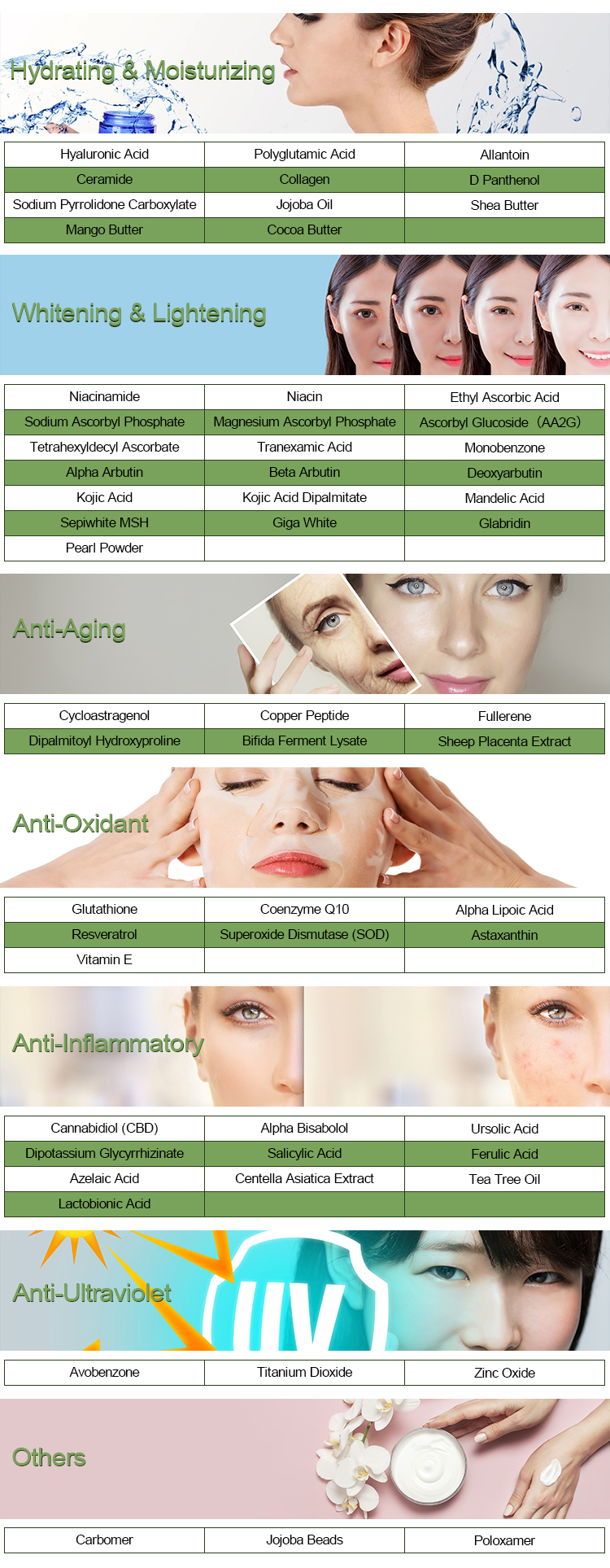Sodium Ascorbyl Phosphate (SAP) is a stable derivative of vitamin C, also known as ascorbic acid. It is commonly used in skincare and cosmetic products due to its potential benefits for the skin. Some of the benefits of Sodium Ascorbyl Phosphate include:
Antioxidant Protection: Like vitamin C, Sodium Ascorbyl Phosphate is an antioxidant, which means it helps protect the skin from the harmful effects of free radicals and UV radiation. This can reduce the signs of premature aging and help maintain a youthful appearance.
Skin Brightening: Sodium Ascorbyl Phosphate has been shown to inhibit the production of melanin, which can help reduce the appearance of dark spots, hyperpigmentation, and uneven skin tone. This makes it a popular ingredient in products designed to brighten the skin.
Collagen Production: Vitamin C derivatives like Sodium Ascorbyl Phosphate can stimulate collagen production in the skin. Collagen is a protein that helps keep the skin firm and youthful. Boosting collagen production can help reduce the appearance of wrinkles and fine lines.
Anti-Inflammatory: Sodium Ascorbyl Phosphate has anti-inflammatory properties, which can be helpful for calming and soothing irritated or red skin. It may be useful for individuals with sensitive or acne-prone skin.
Stability: Sodium Ascorbyl Phosphate is more stable than pure vitamin C (ascorbic acid) and is less prone to oxidation. This means it retains its efficacy for longer periods, even in skincare products with extended shelf lives.
Non-Irritating: Sodium Ascorbyl Phosphate is considered a gentle form of vitamin C and is generally well-tolerated by most skin types. It is less likely to cause irritation compared to some other vitamin C derivatives.

Wound Healing: Some research suggests that Sodium Ascorbyl Phosphate may promote wound healing and reduce the formation of scar tissue. It can be beneficial for minor cuts and abrasions.
Hydration: Sodium Ascorbyl Phosphate may help improve skin hydration by increasing the water content in the skin, making it a good ingredient for moisturizing products.
UV Protection: While not a replacement for sunscreen, Sodium Ascorbyl Phosphate may offer some protection against UV damage and reduce the severity of sunburn.
It’s important to note that the effectiveness of skincare products containing Sodium Ascorbyl Phosphate can vary depending on the formulation, concentration, and individual skin type. If you’re interested in incorporating Sodium Ascorbyl Phosphate into your skincare routine, it’s a good idea to consult with a dermatologist or skincare professional to determine the best products and concentrations for your specific needs.
How to use Sodium Ascorbyl Phosphate to achieve the best results?
Sodium Ascorbyl Phosphate (SAP) is a stable and water-soluble form of Vitamin C that is commonly used in skincare products to provide various benefits to the skin. To achieve the best results when using SAP in your skincare routine, follow these steps:
Choose the Right Product: Look for skincare products, such as serums, creams, or lotions, that contain Sodium Ascorbyl Phosphate. Ensure the product is from a reputable brand and has a concentration of SAP that is effective for your skin type.
Patch Test: Before applying a new product containing Sodium Ascorbyl Phosphate to your entire face, do a patch test on a small area of your skin to check for any adverse reactions. This is especially important if you have sensitive skin.
Cleanse Your Face: Start with a clean face. Use a gentle cleanser to remove dirt, makeup, and excess oil.
Apply a Serum or Cream: After cleansing, apply the SAP-containing product to your face. Start with a small amount, and if your skin tolerates it well, you can gradually increase the amount. Gently massage the product into your skin.
Allow for Absorption: Give the product some time to be absorbed by your skin. It’s usually recommended to wait a few minutes before applying other skincare products.
Use Sunscreen: Vitamin C can make your skin more sensitive to the sun, so it’s crucial to apply sunscreen with broad-spectrum protection after using Sodium Ascorbyl Phosphate products in your morning routine. This helps protect your skin from UV damage.
Consistency is Key: For the best results, use Sodium Ascorbyl Phosphate regularly. Depending on the product and your skin type, this could be once or twice a day.
Combine with Complementary Products: Vitamin C can work well with other skincare ingredients, such as hyaluronic acid, niacinamide, and peptides. However, avoid using Vitamin C products at the same time as products with active ingredients like retinoids, as they can counteract each other.

Be Patient: It can take a few weeks to see noticeable improvements in your skin, so be patient and consistent in your skincare routine.
Storage: Store your SAP-containing products in a cool, dark place, away from direct sunlight, to maintain their stability and effectiveness.
Consult a Dermatologist: If you have specific skin concerns or conditions, or if you’re unsure about incorporating Sodium Ascorbyl Phosphate into your routine, it’s a good idea to consult a dermatologist for personalized advice.
Sodium Ascorbyl Phosphate is known for its antioxidant and brightening properties, making it effective in addressing issues like hyperpigmentation, fine lines, and uneven skin tone. However, individual results may vary, so it’s essential to use it consistently and adjust your skincare routine as needed to suit your skin’s unique needs.
